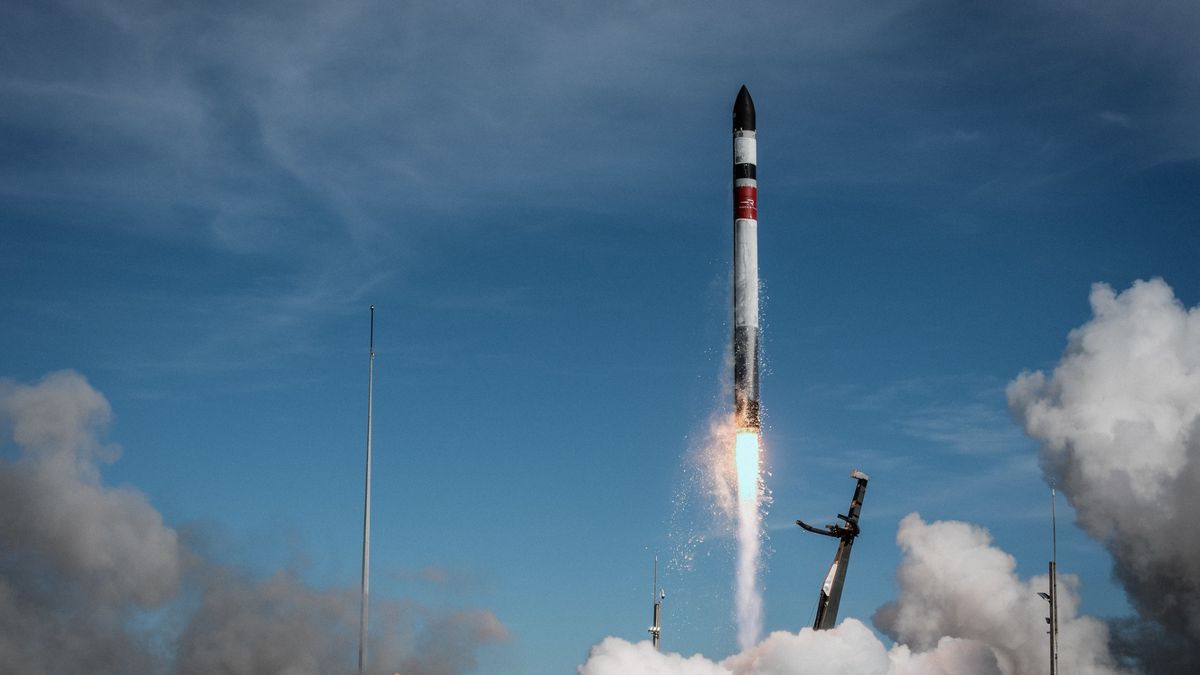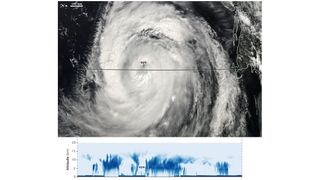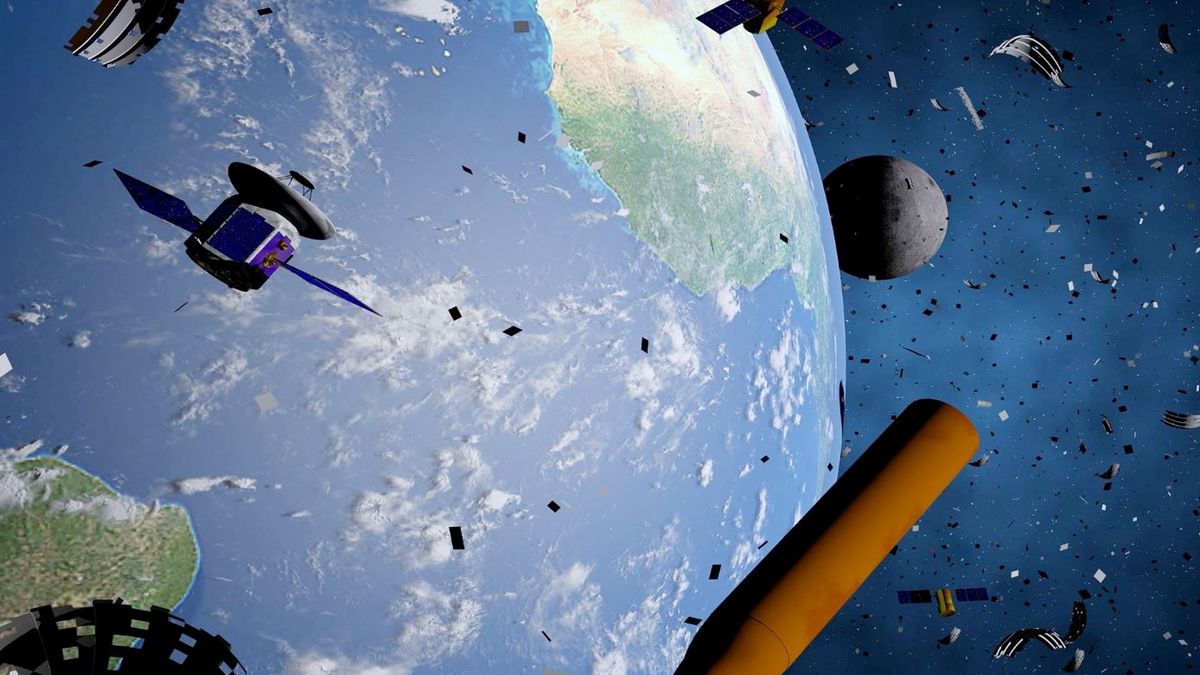Russia vetoed a United Nations resolution that was aimed at preventing a nuclear arms race in space. The resolution was sponsored by the United States and Japan and called upon all nations to never deploy nuclear weapons in outer space. The resolution comes on the heels of recent reports that Russia is developing a nuclear anti-satellite weapon of some kind. The furor caused by the reports led the White House to issue a statement that the rumored weapon poses “no immediate threat to anyone’s safety.” Thirteen nations, including the United…
Read MoreTag: satellites
US Space Force picks Rocket Lab for 2025 Victus Haze space domain awareness mission
The continued push for space domain awareness comes with contracts between the U.S. Space Force and space services companies to create missions that will align with national security needs. Earlier this month, Rocket Lab announced a $32 million contract with Space Systems Command (SSC), an organization within the U.S. Space Force responsible for the service’s development and acquisition of new space technologies and capabilities. The contract is to develop a spacecraft and command and control center for the VICTUS HAZE Tactically Responsive Space (TacRS) mission that aims to quicken the…
Read MoreNASA ends CloudSat Earth-observing mission after 18 years
NASA’s pioneering CloudSat weather and climate mission has come to an end after nearly 18 productive years in Earth orbit. The agency recently decommissioned the satellite, which launched in April 2006 on a planned 22-month mission to study the structure and composition of clouds. “As planned, the spacecraft — having reached the end of its lifespan and no longer able to make regular observations — was lowered into an orbit last month that will result in its eventual disintegration in the atmosphere,” NASA officials wrote in an update on Tuesday (April…
Read MoreIndia aims to achieve ‘debris-free’ space missions by 2030
In late March, the Indian Space Research Organisation (ISRO) announced that one of its satellite missions “practically left zero debris in orbit” after a spent rocket stage was lowered to burn up in Earth’s atmosphere during re-entry. Similar deorbiting techniques will be used to make future missions “debris-free” by the end of this decade, ISRO Chairman S. Somanath said last week. “Over the years, sufficient skill has been developed within ISRO in dealing with topics related to debris management,” Somanath said in a session hosted by the Inter-Agency Space Debris…
Read MoreBus-sized European satellite crashes to Earth over Pacific Ocean
A dead European satellite fell back to Earth today, bringing an end to its nearly 30-year life in space. The European Space Agency’s (ESA) European Remote Sensing 2 (ERS-2) satellite reentered Earth’s atmosphere at 12:15 EST (1715 GMT) over the Pacific Ocean. The fall ended a nearly 13-year deorbiting campaign that began with 66 engine burns in July 2011, depleting the spacecraft of remaining fuel. “We have confirmation of the atmospheric reentry of ERS-2 at 17:17 UTC (18:17 CET) +/- 1 minute over the North Pacific Ocean between Alaska and…
Read MoreFormer Disney TV star Bridgit Mendler co-founds satellite ‘data highway’ startup
On Tuesday (Feb. 20), after a relatively long hiatus from the public eye, Bridgit Mendler announced the launch of her new satellite data startup, Northwood. Beyond introducing quite an interesting company — one that aims to make satellite technology more accessible by mass-producing data-retrieving ground stations on Earth — there’s another major reason the launch has been making headlines. Once upon a time, Mendler was a Disney Channel actress. The 31-year-old space CEO is probably best known for her role as Teddy Duncan, the delightful older sister of Charlie Duncan…
Read MoreSpace is now ‘most essential’ domain for US military, Pentagon says
U.S. military leaders keep stressing that space is the battlefield of the future. The latest statements that continue this orbital saber-rattling came during a change-of-command ceremony at Peterson Space Force Base in Colorado Springs on Jan. 10. During the ceremony, leadership of U.S. Space Command changed from Gen. James Dickinson to Gen. Stephen Whiting, now the third commander to oversee Space Command, which is responsible for all U.S. military operations in outer space. During the ceremony, Deputy Secretary of Defense Kathleen Hicks asserted that, while the People’s Republic of China…
Read MoreStarlink close encounters decrease despite ever-growing number of satellites
SpaceX has reported that the number of close encounters between its satellites and other orbital objects has not increased in the past six months despite the constellation’s growth. Space sustainability experts say the development is good news but warn the decrease in avoidance maneuvers is likely just a deviation from what has been a longer-term upward trend. Twice a year, SpaceX reports to the U.S. Federal Communications Commission (FCC) how many times its satellites had to change their paths to avoid possible collisions with other spacecraft and space debris. The…
Read MoreWorld’s best space-based thermometer dead 2 months after 1st image release
The world’s most advanced space-based thermometer thrilled scientists when it first came online. The HOTSAT-1 satellite’s first images, released in early October, revealed in unprecedented detail how temperatures change on Earth‘s surface. The satellite’s camera was so sensitive it could even track trains from space from their thermal signatures. But now, only six months after its launch from Vandenberg Space Force Base in California, the experimental spacecraft is out of order. SatVu, HOTSAT-1’s maker and operator, announced on Friday, Dec. 15, that the spacecraft suffered an “anomaly, which is expected…
Read MoreEirsat-1, Ireland’s 1st satellite, makes space history
Ireland has joined the space club with the launch of its first satellite to low-Earth orbit, setting the stage for students of all ages across the Emerald Isle to get involved in space science. The Educational Irish Research Satellite-1 (Eirsat-1) blasted into space from Vandenberg Air Force Base in California atop a SpaceX Falcon 9 rocket on Dec. 1. Around an hour and a half after launch, the tiny satellite, which is not much larger than a house brick, unfolded and deployed its antenna. Eirsat-1 made contact with its operators…
Read More





